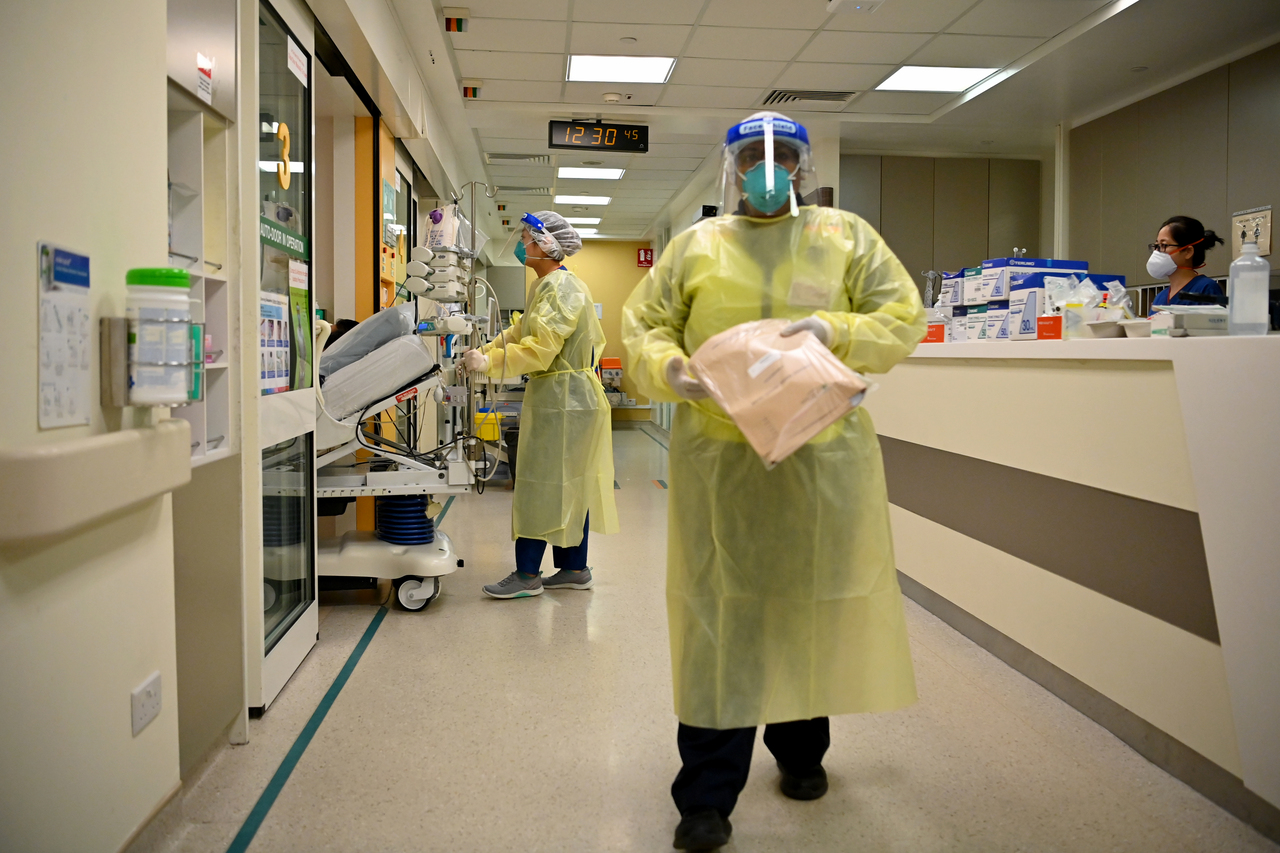Budget 2022: $6b draw on past reserves to pay for Covid-19 public health expenditure
Sign up now: Get ST's newsletters delivered to your inbox

These are temporary and extraordinary measures required to maintain a multi-layered public health defence in the near term, said the MOF.
ST PHOTO: LIM YAOHUI
Follow topic:
SINGAPORE - To make sure that Singapore can respond nimbly and confidently to the evolving Covid-19 situation, the Government will dip into the country's past savings to the tune of $6 billion this year to pay for related public health expenditure, said Finance Minister Lawrence Wong on Friday (Feb 18).
This brings to $42.9 billion the total expected draw on the past reserves for the three financial years of 2020 to 2022, less than the initial sum of $52 billion that the Government projected it would need at the onset of the pandemic.
Delivering the Budget statement in Parliament, Mr Wong said President Halimah Yacob has given her in-principle support for the $6 billion draw.
Of this sum, $3.7 billion will go towards Covid-19 testing, clinical management and contact tracing, $1.2 billion towards vaccination and therapeutics, and $1.1 billion towards isolation facilities, border management and safe distancing.
The Ministry of Finance (MOF) said in a statement that these are temporary and extraordinary measures required to maintain a multi-layered public health defence in the near term.
Mr Wong, speaking on the cumulative draw on the reserves, noted that for both the 2020 and 2021 financial years, the Government ended up needing less than the original amount of reserves it was looking to draw.
"It reflects our prudence in the use of past reserves," he said.
In FY2020, the Government had said it would draw up to $52 billion to pay for measures needed to protect lives and livelihoods as economies around the world were battered.
But it now expects to use $31.9 billion for that financial year, said Mr Wong.
This is because Singapore's "swift and decisive response" to the pandemic averted worse public health outcomes, and the stronger-than-expected rebound in the economy and businesses also meant that measures such as loan loss provisions were not used, added Mr Wong.
MOF said Singapore was able to avoid severe public health outcomes due to safe management measures and the cooperation of Singaporeans.
It added that the sizeable fiscal support for businesses had helped the economy bounce back and kept a lid on non-performing loans.
Likewise, in FY2021, the Government had planned to draw $11 billion to pay for the Covid-19 Resilience Package, but now expects to draw just $5 billion, said Mr Wong.
He said the smaller amount needed is mainly due to a reduced expenditure of $10 billion for the Covid-19 Resilience Package, as well as ministries not needing to spend as much because of projects being delayed by Covid-19.
The Government had also received extra revenue from one-off revenue upsides, including from vehicle quota premiums and stamp duties, he added.
In addition, said Mr Wong, the Government had tapped existing resources to provide short-term relief when restrictions had to be tightened periodically last year to bring down the number of Covid-19 cases.
For instance, the $2 billion worth of economic relief measures introduced during the periods of heightened alert last year had been covered through a reallocation of funds, while the $1.4 billion worth of support measures introduced during the stabilisation phase had come from an advance from the Contingencies Fund.
Mr Wong added that he will replace the advances from the Contingencies Fund, set up for urgent, unforeseen expenditures, through the Supplementary Budget for FY2021.
With spending needs expected to grow as Singapore tackles structural shifts and invests more to deliver on longer-term priorities laid out in Budget 2022, the Government will continue to manage expenditure growth, in addition to raising revenue, said Mr Wong.
Since FY2017, the Government has implemented a 2 per cent cut in the budgets of all ministries and organs of state, and there will be a further 1 per cent cut from FY2023, added Mr Wong.
The cuts have ensured that "we spend judiciously and achieve good value-for-money outcomes", said Mr Wong, adding that funds from the new adjustment will be channelled to new priorities.
Correction note: An earlier version of this story stated that there will be an increase of 1 per cent to the cuts on the budgets of all ministries and organs of state. This has been corrected. We are sorry for the error.

